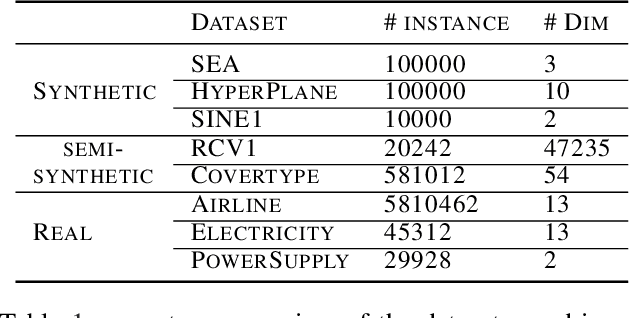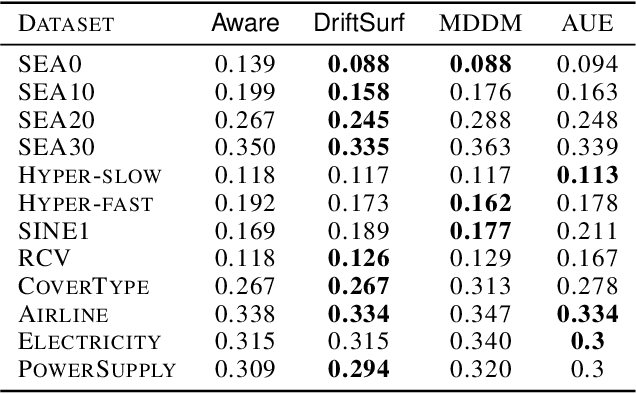Ellango Jothimurugesan
Federated Learning under Distributed Concept Drift
Jun 01, 2022



Abstract:Federated Learning (FL) under distributed concept drift is a largely unexplored area. Although concept drift is itself a well-studied phenomenon, it poses particular challenges for FL, because drifts arise staggered in time and space (across clients). Our work is the first to explicitly study data heterogeneity in both dimensions. We first demonstrate that prior solutions to drift adaptation, with their single global model, are ill-suited to staggered drifts, necessitating multi-model solutions. We identify the problem of drift adaptation as a time-varying clustering problem, and we propose two new clustering algorithms for reacting to drifts based on local drift detection and hierarchical clustering. Empirical evaluation shows that our solutions achieve significantly higher accuracy than existing baselines, and are comparable to an idealized algorithm with oracle knowledge of the ground-truth clustering of clients to concepts at each time step.
DriftSurf: A Risk-competitive Learning Algorithm under Concept Drift
Mar 13, 2020



Abstract:When learning from streaming data, a change in the data distribution, also known as concept drift, can render a previously-learned model inaccurate and require training a new model. We present an adaptive learning algorithm that extends previous drift-detection-based methods by incorporating drift detection into a broader stable-state/reactive-state process. The advantage of our approach is that we can use aggressive drift detection in the stable state to achieve a high detection rate, but mitigate the false positive rate of standalone drift detection via a reactive state that reacts quickly to true drifts while eliminating most false positives. The algorithm is generic in its base learner and can be applied across a variety of supervised learning problems. Our theoretical analysis shows that the risk of the algorithm is competitive to an algorithm with oracle knowledge of when (abrupt) drifts occur. Experiments on synthetic and real datasets with concept drifts confirm our theoretical analysis.
 Add to Chrome
Add to Chrome Add to Firefox
Add to Firefox Add to Edge
Add to Edge